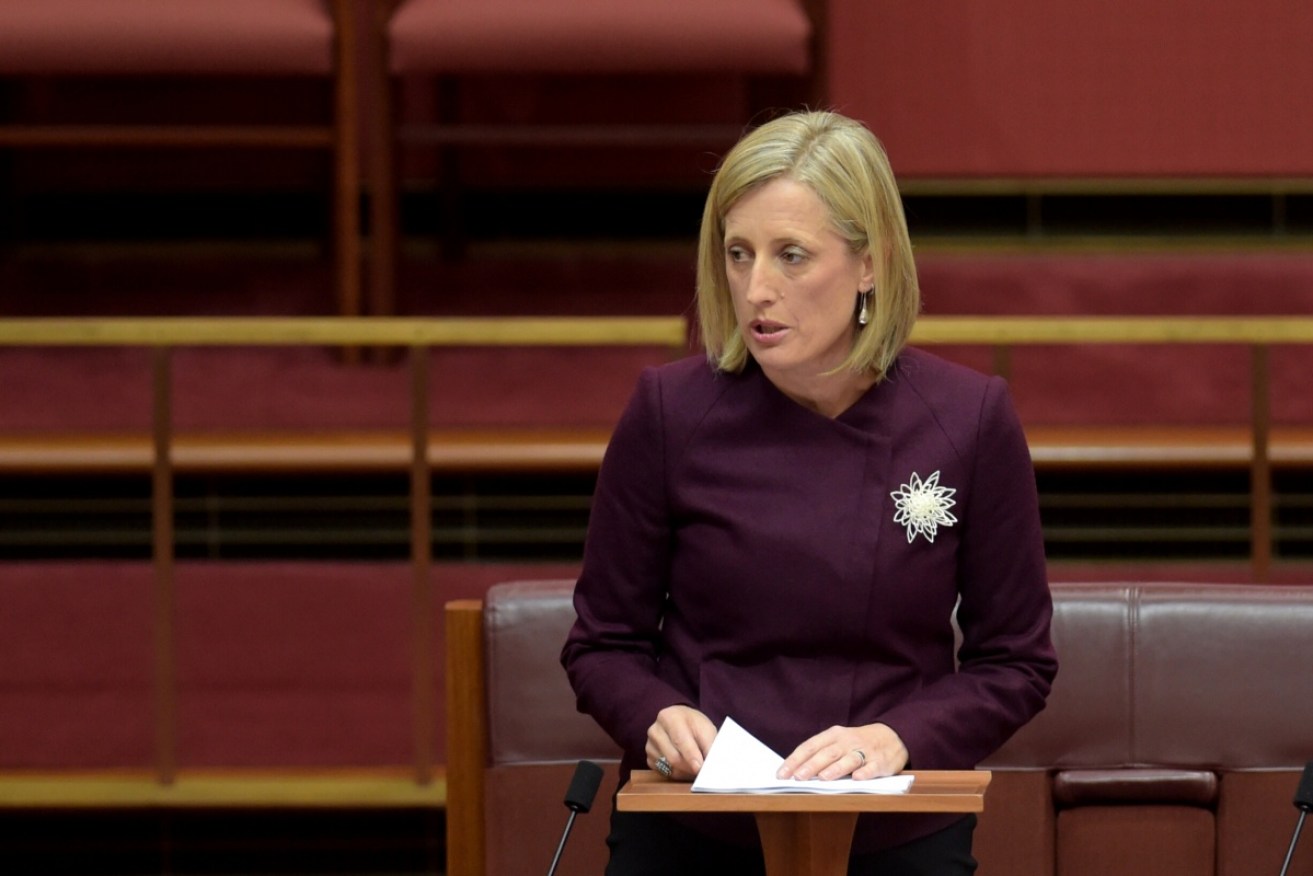High Court hears Labor senator left citizenship renunciation too late

Ms Gallagher claimed she took all reasonable steps to renounce her British citizenship before the election. Photo: AAP
Labor’s Katy Gallagher left it too late to renounce her British citizenship before nominating before the 2016 election so should suffer the consequences, the High Court has heard.
The court’s full bench is hearing arguments as to whether the steps the Labor senator took were enough for her to remain in parliament or if she will be the next victim of the citizenship saga.
Solicitor-General Stephen Donaghue says it is clear the former ACT chief minister did not comply with renunciation requirements and, as a result, her Senate seat should be vacated.
Senator Gallagher submitted her renunciation application on April 20 and was charged a fee for it on May 6, 10 days before federal election writs were issued.

The High Court is hearing Senator Katy Gallagher’s citizenship case. Photo: AAP
Her lawyers argue what she provided was “sufficient there and then” to meet renunciation requirements but the British Home Office requested further details on July 20, almost three weeks after the election.
But Mr Donaghue told the court on Wednesday that publicly available estimates of renunciation processing times ranged between 55 and 60 days – and in some cases, up to six months – but Senator Gallagher left just 41 days for hers.
“On those facts alone, your honours could conclude she did not take all reasonable steps,” he said.
Senator Gallagher was preselected 12 months before the election and 11 months before she nominated.
“If a candidate chooses to leave it too late … they’ll suffer the consequences,” he said.
Mr Donoghue also argued the documents initially provided by Senator Gallagher – copies of her passport and birth certificate – were insufficient because renunciation guides and forms made it clear she must prove she had citizenship by descent with copies of her father’s birth certificate and parents’ marriage certificate.
That point is vehemently opposed by the senator’s legal team.
Justin Gleeson said she was entitled to believe her birth certificate was enough to prove her father was a British citizen.
He said there was no legal requirement under UK law for her to provide her father’s birth certificate or parents’ marriage certificate and what she sent with the initial application was entirely compliant with UK law.
Her legal team argues the test in the part of the constitution dealing with dual citizenship, section 44, is whether a person has taken reasonable steps available to them to renounce citizenship.
They say Senator Gallagher had taken reasonable steps.
But Mr Donaghue warned not requiring a person comply with all requirements could lead to new MPs legitimately entering parliament while still holding dual citizenship or even cases in which candidates are able to drop renunciation applications if they are not elected.
“There’s potential for the system to be gamed in some way,” he said.
The hearing continues.
-AAP








